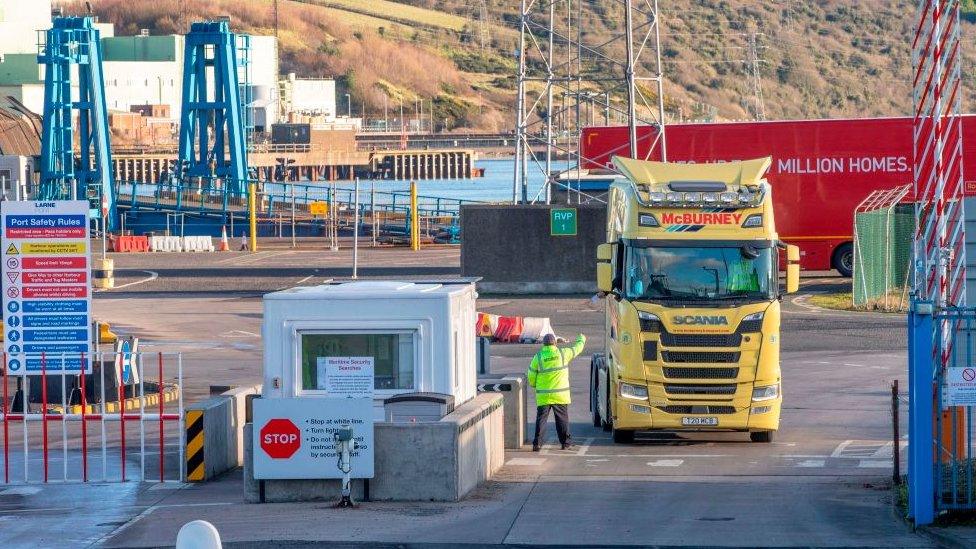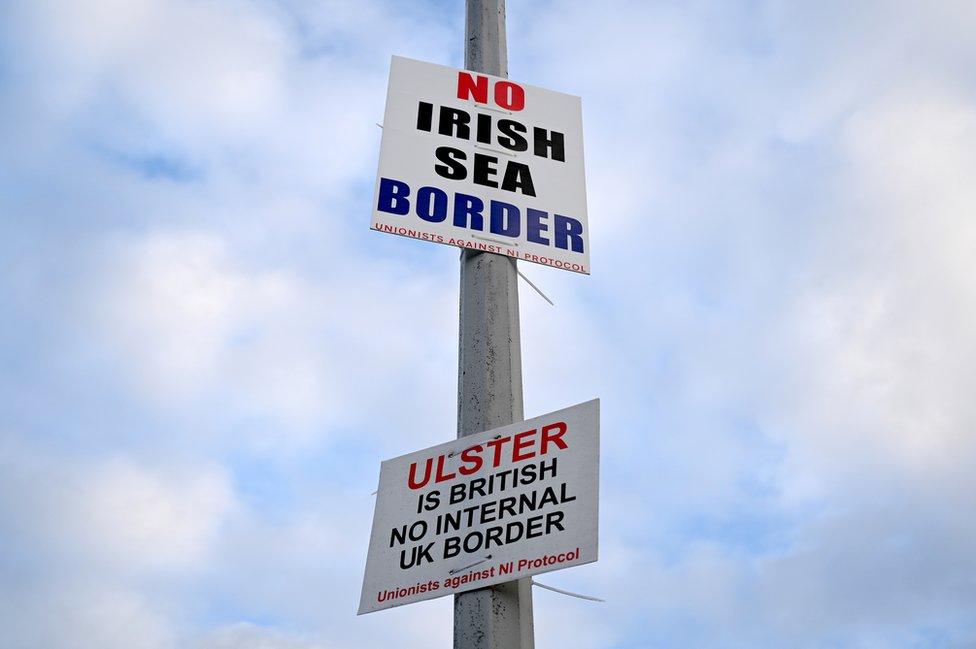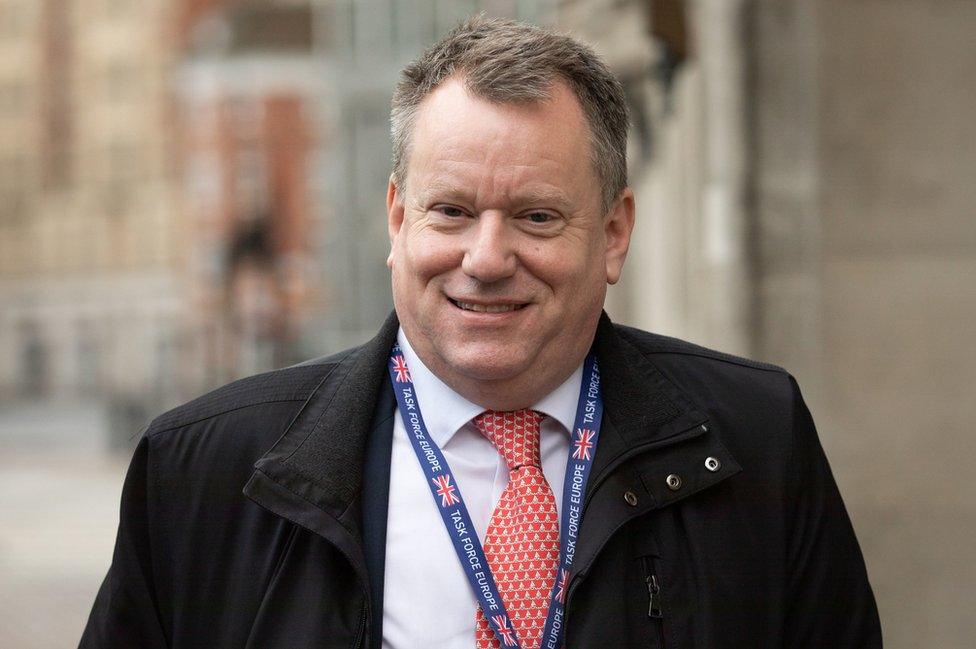Brexit: UK-EU talks on Northern Ireland 'to intensify'
- Published

The UK and the EU have said they will intensify talks on NI following a meeting of their chief negotiators.
The UK Brexit Minister Lord Frost and EU Commission Vice-President Maros Sefcovic held discussions in Brussels on Thursday night.
Mr Sefcovic said that a EU legal action over the UK's alleged breach of the Northern Ireland deal would continue "as long as necessary".
Last month the UK delayed some Irish Sea border checks without EU agreement.
Since then officials have been holding technical talks which Lord Frost said had given "some positive momentum" to the process.

Many unionists oppose the post-Brexit arrangements, saying they threaten Northern Ireland's place in the UK
However he cautioned that a number of difficult issues remain.
One of the key issues is the regulation of food and agriculture products - they are subject to intensive checks as they enter Northern Ireland from Great Britain.
The UK continues to reject the idea of an agreement with the EU on plant and animal health measures which would reduce the level of checks because it would involve dynamic alignment with EU rules in this area.
The UK is continuing to suggest a "trusted trader" scheme which would sharply reduce the controls on eligible traders who could show the EU they have secure and auditable supply chains.

Lord Frost met his EU counterpart Maros Sefcovic in brussels on Thursday
Mr Sefcovic said he emphasised that the implementation of the Northern Ireland deal, known as the Protocol, is "a joint endeavour, which leaves no space for unilateral action".
He added that mutually agreed paths towards full compliance with the Protocol must include "clear end-points, deadlines, milestones and the means to measure progress".
Lord Frost said he repeated the UK's commitment to working through the joint bodies provided for by the Northern Ireland deal.
He underlined that any solutions had to be consistent with the overriding commitment to respecting the Good Friday peace agreement "in all its dimensions and to ensuring minimum disruption of everyday lives in Northern Ireland".
The two sides have said they have agreed to further engagement with business groups, civil society and other stakeholders in Northern Ireland shortly.
Related topics
- Published2 February 2024
